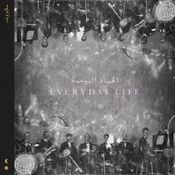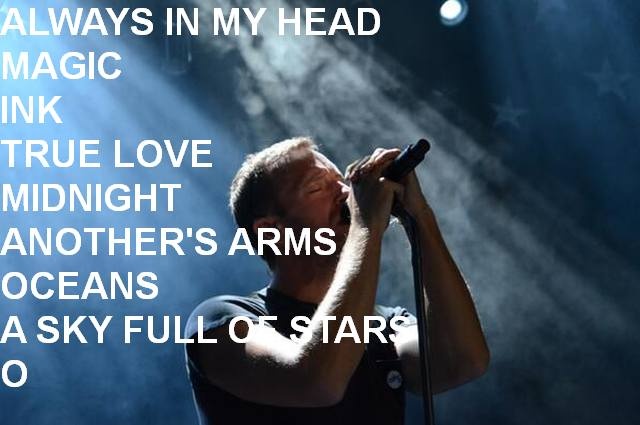

Several of the songs reflect his fears about the way society is going: “Privacy. “All those stabs in the back and ceilings that have been put on me in my life started building up again, so I’ve come back fighting,” he says.Īshcroft’s new album, These People, reunites him with the Urban Hymns’ strings arranger Wil Malone, and has what he calls an “ancient and modern” sound.

Ashcroft isn’t known for humility, but says he asked himself: “Have I got anything to offer or am I just adding more shit to the pile?” Gradually, he regained the desire to make music. He stopped using the internet and threw away his mobile phone. He’s spent the past six years “breaking myself down and building myself up again”, a process that he says has been painful.
#Coldplay song arms how to#
The big conundrum, he says, has been how to tame his old creative “desire to smash things up” to suit life as an adult with children. “There’s no point writing a suicide note like Kurt Cobain,” he says. All those stabs in the back and ceilings that have been put on me started building up again, so I’ve come back fighting Richard Ashcroft He walked away from music again, seemingly for ever. Then, while touring in 2010, he contracted pneumonia and felt himself mentally broken. He launched a solo career in 2000 with a hit album, Alone With Everybody, but began to falter with the 2002 followup Human Conditions. “I don’t want to be onstage when I feel like I’m cheating the audience,” he explains. Yet Ashcroft walked away repeatedly, splitting the Verve three times. They released two albums before truly crossing over with Urban Hymns, which sold 10m copies worldwide and became the 17th bestselling album ever in the UK. When he was a young man, while his peers went to work in factories or offices, he formed the Verve – and it is worth remembering how out of time a band they were, performing long, freeform jams when they began to make an impression in the early 90s. “I wasn’t expected to marry a beautiful wife and have kids.”Īshcroft has always sought to confound expectations. “People wanted me to become this cliched Keith Richards, Iggy Pop character,” he says. Richmond is where he has lived for the past 15 years, in unpsychedelic domesticity. It’s hard, now, to reconcile the cheerful, chatty, 44-year-old sipping water in a Richmond pub with the Ashcroft of two decades ago, the “Pete Townshend character, a northern soul, who could star in a musical, who’s still within me”. “Try to make ends meet / You’re a slave to the money / Then you die,” he sang.

If there’s an image of Ashcroft fixed in the public mind, it comes from the video for the Verve’s breakthrough single, Bitter Sweet Symphony which featured Ashcroft walking down a street, while everyone else walks the other way, his eyes fixed on the camera refusing to be pushed from his path. Noel Gallager wrote the Oasis song Cast No Shadow about him and Chris Martin introduced him at Live 8 as “the best singer in the world” while the music mags nicknamed him “Mad Richard” after he claimed he could fly. Ashcroft, wild-eyed and shaggy-haired, was a man prone to ridiculous pronouncements who inspired incredible loyalty. The Verve had blazed out of the north-west, a product of both rave culture and psychedelia. She’s obviously wasted, and that shot just sums that period up.

It’s five in the morning, she’s watching some lads play a video game. Shane Meadows faded in on this girl’s retina. “A scene in This is England brought it home. “T he way we and our mates were living back then was crazy,” says Richard Ashcroft, remembering the days he was on the precipice of fame before the Verve’s third album, Urban Hymns, made them ubiquitous in 1997.


 0 kommentar(er)
0 kommentar(er)
